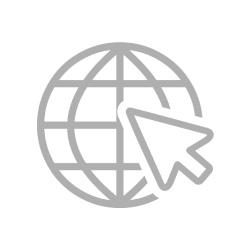TThe Covid crisis, the war in the Black Sea, tensions in the Red Sea, the Panama Canal running dry... Ships are slowing down, the price of containers is skyrocketing, insurers are bidding up premiums, bankers are hesitant: food, fuel, and precious minerals are no longer being delivered. With these crises, the world is rediscovering the role of trading activities in global trade. The WTO too!
It is not enough to reduce customs duties, streamline procedures, and reduce non-tariff barriers. Someone still must negotiate, buy, remove, store, transport, finance, and deliver to distributors the raw materials that feed trade and industry. The irony of capitalism: Karl Marx would have smiled at this find without infrastructure, the superstructure cannot function!
The WTO and trade are two pillars of indispensable trade. Indispensable?
The trade in raw materials and maritime transport, which accounts for 80% of its movement, connects producers and consumers, or their processing industries. Because these materials cannot be relocated. According to the IMF, the top three producers account for nearly 65% of agricultural production, 50% of energy production, and 70% of mineral extraction, out of a total estimated at around $10 trillion. Their purchases are vital for many countries: those that are net importers of their food, those that cannot achieve energy self-sufficiency.
The flow of supplies also irrigates the value chains that structure the international economy based on processing know-how. For example, did you know that Swiss coffee exports are almost equal to those of Colombia?
Trade and transport allow us to reconcile geographical differences and temporal variations between markets: Europeans consume more gas in winter, they produce more fruit in summer. Trade also helps to cushion shocks: with the war in Ukraine, several African countries have had to look for their grains far from the Black Sea; strikes in the mines of Zambia have disrupted the copper market; the drop in Chinese demand linked to COVID has forced us to find other outlets.
The multilateral trading system is also indispensable, as it guarantees a certain predictability in the integration of global markets. Trade and international transport are governed as service activities, covered by the market opening commitments of each country within the WTO. The spectrum is very broad: logistics (transport, storage, distribution), storage (essential for managing seasonal variations), transformation (refining, industrial processes), finance (risk management, trade finance, insurance).
Other WTO agreements have a direct influence on the conditions under which traders operate. In agriculture, commitments on tariffs, subsidies and sanitary regulations influence the prices and terms of trade of “commodities”. More technical provisions govern the behaviour of States in the control and passage of goods at borders: customs valuation, pre-shipment inspections, documentary and transit procedures covered by the “trade facilitation” agreement.
What future are traders and the international system that governs them preparing for?
There are a few underlying trends.
More international political uncertainty. For example, in the first half of January 2024, the Houthi threat in the Red Sea reduced the number of wheat cargoes transiting the Suez Canal by 40%, generating new fears among importing countries. The trend towards geopolitical fragmentation of trade flows is beginning to be seen in the statistics.
More sustainability. Consumer preferences, technological and industrial transformations, the climate strategies of companies and governments, and the demands of citizens are pointing towards a new trade. Copper, nickel, cobalt, and lithium already play an essential role in the ecological transition of industries. Fair prices, gender equality, inclusion of marginalized populations, and respect for human rights are becoming new market challenges for multinational companies in their operations abroad.
More digitization. Traceability of flows and product origin, environmental accounting and certification, efficiency of finance and payment systems, new interfaces for exchange with government administrations will shape the backbone of tomorrow's trade.
On all these fronts, the WTO is already providing crucial answers and will also need to adapt.
By its very existence, the organization provides a framework for helping to manage the economic consequences of political tensions. Its role in transparency and monitoring of trade policies helps to build trust and a spirit of cooperation. The commitments of its members to keep markets open have had an undeniable impact, as seen in the reaction to recent crises, in maintaining the flow of essential health and food products to populations.
The development of international rules adapted to the digital age has been undertaken by some members. Negotiations on e-commerce have advanced on topics such as electronic signatures and contracts, paperless trade, online consumer protection, cybersecurity and access to government data. Slower is the maturation of discussions on environmental sustainability and the fight against climate change, to which the WTO could nevertheless contribute a lot: transparency of trade in critical minerals, regulation of subsidies to green industry, opening of markets to pro-environmental innovations, dissemination and transfer of technology, pollution control tools and services, etc...
Trading and international rules are thus two sides of the same coin: the one that enables the old commercial exchange linking human communities to continue, today and tomorrow, on a global scale.
